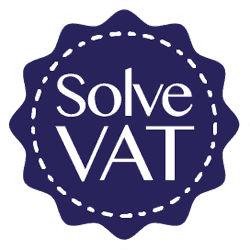VAT Risks Mitigated: Expert Consultants
Managing VAT Risks: Professional Consultants
Value-added tax (VAT) compliance can be a daunting task for even the most experienced business owners. The complexities involved in VAT regulations make it difficult to keep up with, and non-compliance can lead to financial penalties, damage to your reputation, and even the possibility of trading restrictions. In this blog, we will explore the importance of VAT compliance and understand its basics. We will also dive into identifying potential risks and their implications for your business. Further, we will discuss the role of VAT recovery in compliance and strategies to mitigate these risks. Join us as we explore how professional consultants can help you stay compliant with VAT regulations and protect your business from financial loss and reputational damage.
Understanding VAT Compliance
Understanding VAT Compliance is critical for businesses to help minimise VAT risk issues arising. Proficient comprehension of VAT complexities, due diligence in treatment, and professional consultancy are vital. Additionally, accounting software maintains accurate VAT records, ensuring compliance with tax authorities. The software also aids in VAT recovery, registration, and compliance.
The Basics of VAT
VAT, an indirect tax on goods and services consumption, must be charged and collected by businesses on behalf of tax authorities. Varying implications across countries and industries require reasonable care. Mandatory compliance includes a valid VAT number and tax invoice documentation, with input VAT reclaimable.
Importanc of VAT Compliance
Maintaining adherence to VAT regulations is essential to avoid penalties and interest charges. It ensures seamless operations and payments within the supply chain. Compliance reflects dedication to tax regulations, while non-compliance may lead to disputes and audits. Professional consultancy assists with exemptions, refunds, and inquiries.

Identifying VAT Risks
Identifying potential risks is crucial for safeguarding businesses from penalties. Understanding the implications of non-compliance is critical, and VAT specialists can assist in mitigating tax risks. Due diligence is necessary to prevent potential VAT fraud, along with valid VAT number verification to mitigate trading restrictions.
Potential Financial Penalties
Non-compliance with VAT regulations can result in financial penalties, interest charges, and disputes. The professional consultancy helps minimise penalties through compliance and proactive measures. Understanding the implications of non-compliance is crucial for prioritising compliance.
Repercussions of VAT Inspections
VAT inspections have significant consequences on financial operations, emphasising the need for accurate documentation and professional consultancy. Proactive measures help minimise VAT risks, while VAT specialists provide insights during inspections. A proactive VAT perspective is crucial for UK and EU businesses, especially after January and April.
Risk of Trading Restrictions
Understanding the implications of non-compliance with VAT rules is crucial for mitigating trading risks. Professional consultancy plays a significant role in assisting businesses to navigate potential trading restrictions and ensure uninterrupted business operations. Prioritising compliance is essential to avoid potential disruptions due to trading restrictions.
The Implications of Non-compliance
Non-compliance with VAT regulations carries far-reaching implications for businesses, including potential penalties and disputes. Understanding these risks is crucial to mitigate repercussions, requiring proactive measures. Professional consultancy offers valuable insights into the implications of non-compliance.
Understanding Non-compliance
Understanding the intricacies of non-compliance is essential for businesses to evaluate potential VAT implications. Professional consultancy guides in comprehending the VAT risk, helping mitigate penalties and facilitating proactive measures for addressing challenges.
Consequences of Not Registering for VAT
Failure to register for VAT may lead to potential penalties and interest charges, resulting in disputes with tax authorities. Ignoring registration requirements can cause tax risks and liabilities, impacting due diligence and compliance. Operating without a valid VAT number can have indirect tax implications.
Liability for VAT Registration
Understanding the intricacies of VAT registration is crucial for compliance from a professional perspective. Proper documentation is essential for registration, considering the varying liability based on supply chain and input VAT treatment. Adhering to registration rules is vital in avoiding potential penalties and demonstrating reasonable care and knowledge.
Operating Without a VAT Number
Operating without a valid VAT number can impact recovery and compliance, affecting due diligence and audit processes. The absence of a valid VAT number can lead to complexities in accounting software, limiting input VAT recovery opportunities and resulting in queries and exemption issues.
The Role of VAT Recovery in Compliance
VAT recovery plays a crucial role in compliance, offering businesses cost reduction and improved cash flow. Professional consultants guide in VAT compliance, VAT risk management, and navigating cross-border transactions. Partnering with VAT recovery specialists helps identify and address potential risks, ultimately increasing profitability.
Understanding VAT Recovery
When reclaiming VAT, businesses must understand its importance and how professional consultants can assist. Mitigating risks and choosing the right consultant are crucial considerations. From a VAT perspective, the UK and EU have specific recovery regulations in place, effective from April and January, respectively.
How VAT Recovery Influences Compliance
By optimising VAT recovery, businesses can enhance their cash flow and reduce costs. Professional consultants play a pivotal role in identifying and recovering VAT overpayments, leading to better comprehension of compliance requirements. Improved compliance mitigates the risk of penalties and fines, with ongoing support from consultants ensuring sustained compliance and VAT recovery optimization.
Strategies to Mitigate VAT Risk
Employing strategies for VAT compliance requires understanding regulations and fraud. Diligence, audit readiness, and expertise are vital to mitigate risks. Valid VAT numbers and tax invoice compliance help manage payments and recovery, ensuring a professional and knowledgeable VAT perspective.
Proactive Measures for VAT Compliance
In the realm of VAT compliance, professional consultants play a crucial role in ensuring adherence to regulations and mitigating risks. Regular VAT health checks and risk assessments help identify and address potential issues, while staying updated with VAT regulations is essential for compliance. Implementation of VAT automation technology can further streamline and enhance VAT management from a professional perspective.
Can VAT Risks be Completely Eliminated?
While it is not possible to completely eliminate risks, businesses can take proactive measures to have the risks mitigated. By implementing robust internal controls, staying updated on tax regulations, and seeking professional advice, companies can mitigate the potential impact of VAT risks on their operations and financial stability. However, it’s important to acknowledge that some level of VAT risk will always exist in managing VAT compliance.
Frequently Asked Questions
What are the common VAT risks faced by businesses?
Common VAT risks faced by businesses include incorrect VAT registration, charging the wrong VAT rate, and inadequate record-keeping. Late submission of VAT returns and claiming incorrect deductions are also common risks. To mitigate these risks, consulting professional VAT consultants who specialise in compliance and risk management can be beneficial. Staying updated with VAT regulations is crucial to avoid potential risks.
What are the penalties for non-compliance with VAT regulations?
Penalties for violating VAT regulations can vary depending on the severity of the offence. Late filing or payment can result in financial penalties and interest charges. Failure to register for VAT can lead to significant fines and legal action. Repeated non-compliance may even result in criminal prosecution and imprisonment.
Conclusion
In conclusion, managing VAT risks is crucial for businesses to maintain compliance and avoid potential financial penalties, reputational damage, and trading restrictions. Understanding the basics of VAT and the importance of compliance is the first step towards mitigating risks. Identifying potential risks such as non-compliance, VAT inspections, and their implications is essential for safeguarding your business. VAT recovery plays a significant role in compliance, and implementing proactive measures can further mitigate risks. While it may not be possible to completely eliminate risks, professional consultants can provide valuable guidance and support to ensure your business operates within the legal framework. Protect your business and maintain VAT compliance by seeking the expertise of professional VAT consultants at SolveVAT.
The UK Tax authority responsible for administering VAT is HM Revenue & Customs (HMRC) and general guidance can be found at https://www.gov.uk/guidance/vat-guide-notice-700
